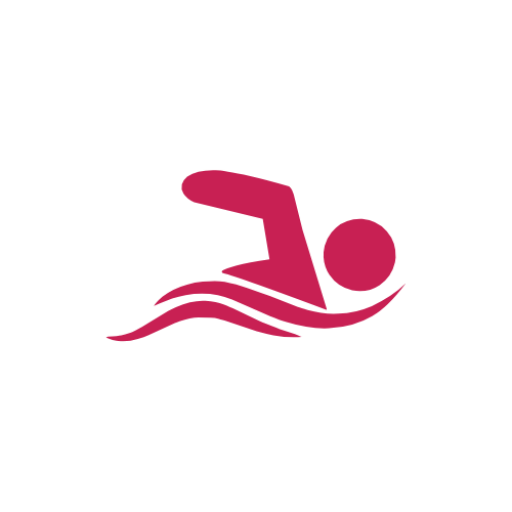Do Expats Need a Dutch Swimming Diploma? (Zwem‑ABC)?
Why the confusion?
The Netherlands is crisscrossed by canals, lakes, and the North Sea, so swimming competence is culturally non‑negotiable. But competence doesnt mean compulsory diploma, especially for adults. In April 2025, the government explicitly chose not to make school swimming mandatory again, confirming there’s is no national legal requirement for adult expats to hold a Dutch swimming diploma in the Netherlands.
For kids, many municipalities, clubs and pools do require proof (or impose rules like armbands) before they access deep water or participate in water activities. That’s a local policy, not national law.
Do Expats in the Netherlands Need a Dutch Swimming Diploma (Zwem‑ABC)?
The Zwem‑ABC is the Dutch skills framework. Diploma C equals the Nationale Norm Zwemveiligheid (National Standard for Water Safety), not a must for adult expats, and covers indoor and outdoor pools and open water without strong current. It’s an excellent target for children and a useful reference for adult expats, but it isn’t required for everyday adult life in the Netherlands.
Some Dutch employers (e.g. first responders or certain sports programs) do recognize the Zwem‑ABC national diplomas, but that’s a workplace requirement, not a societal one.
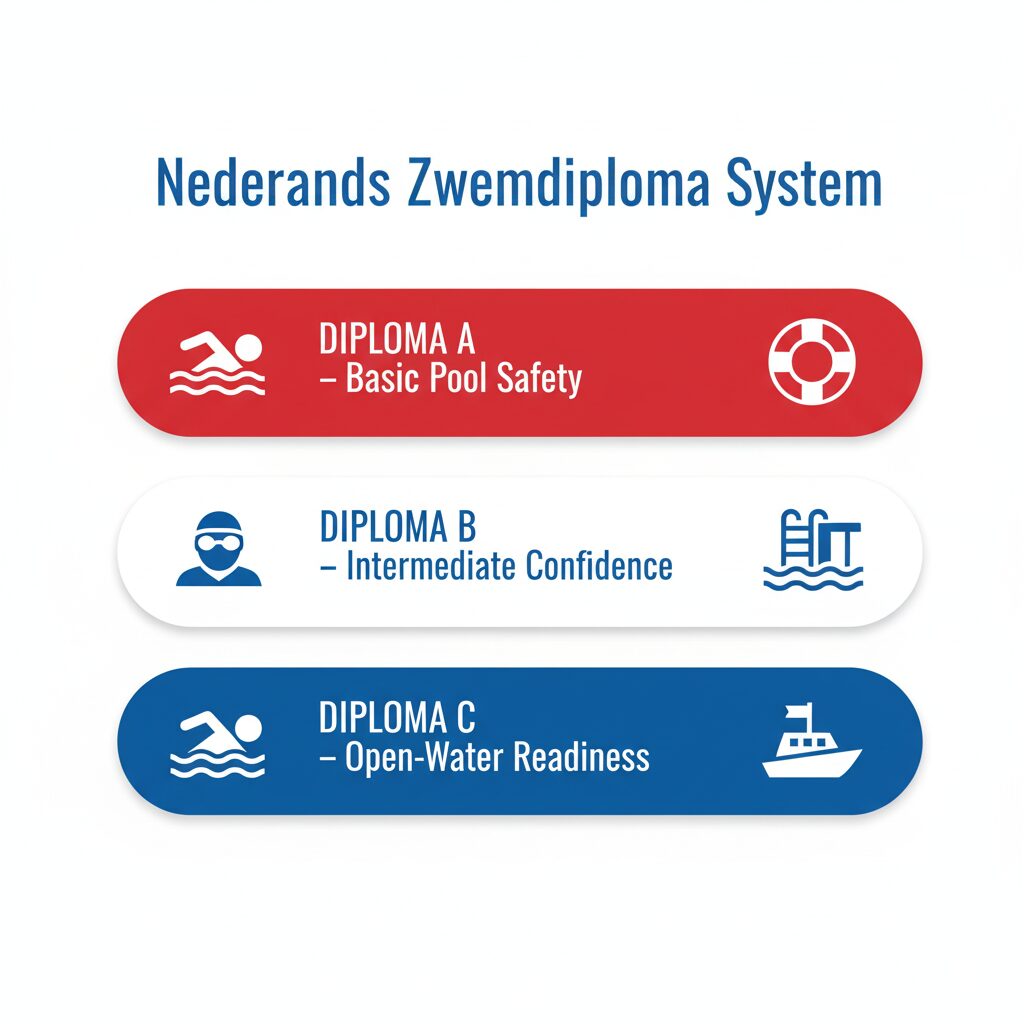
How pools gate access
- Kids without a diploma: typically restricted to the shallow end and often must wear armbands; no access to deep water.
- Adults: lifeguards admit or restrict based on observed ability. If you can’t swim, you’re not allowed in, diploma or not.
For adults, demonstrable competence beats a certificate.
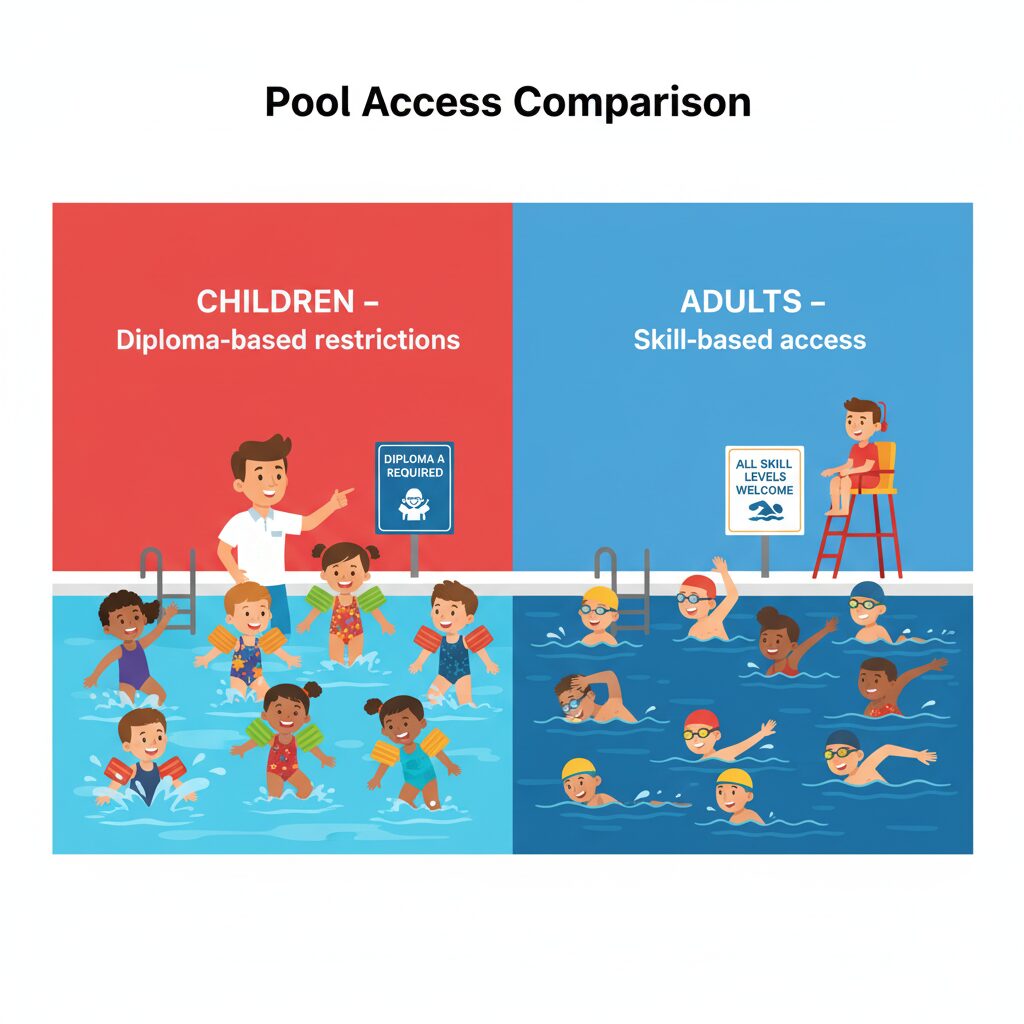
The reality: practical skill outweighs a certificate
In the Netherlands, the real safeguard against accidents isn’t a diploma, it’s what you can actually do in the water. Statistics show that most drownings occur in open, uncontrolled environments such as lakes and canals, not in supervised pools. That’s where your ability to float, orient yourself, and reach safety truly matters.
Possessing a diploma earned years ago doesn’t automatically make you safe today. Water confidence and stamina fade if you stop training, something even the National Swimming Safety Council (NRZ) warns about. Regular practice, not past paperwork, determines how you react under stress or in cold water.
For expats, especially those who learned to swim abroad, the smart investment is not chasing certification but maintaining functional competence: the capacity to enter, swim, and exit safely in both pool and open-water settings. In short, currency of skill outweighs the currency of certification.
Diploma or no diploma?
You don’t need a diploma if you:
- Want to swim for fitness, confidence, or basic safety at pools or guarded beaches in Amsterdam or elsewhere in the Netherlands.
- Are focused on skill outcomes and regular practice.
Pool access it is based on ability not on diploma level.
You might want a diploma if you:
- Need a recognized credential for a job, course, or club that asks for it (e.g. some emergency services or sports programs).
- Want a structured benchmark to track progress (e.g. aiming for C‑level competence as your personal KPI).
The adult‑skills checklist that keeps expats in the Netherlands safe
Aim to be able to:
- Enter safely and surface calmly.
- Tread water for 60–90s, rotate 360°, and roll to a back float on command.
- Swim 100 m continuously in the pool.
- Exit unaided.
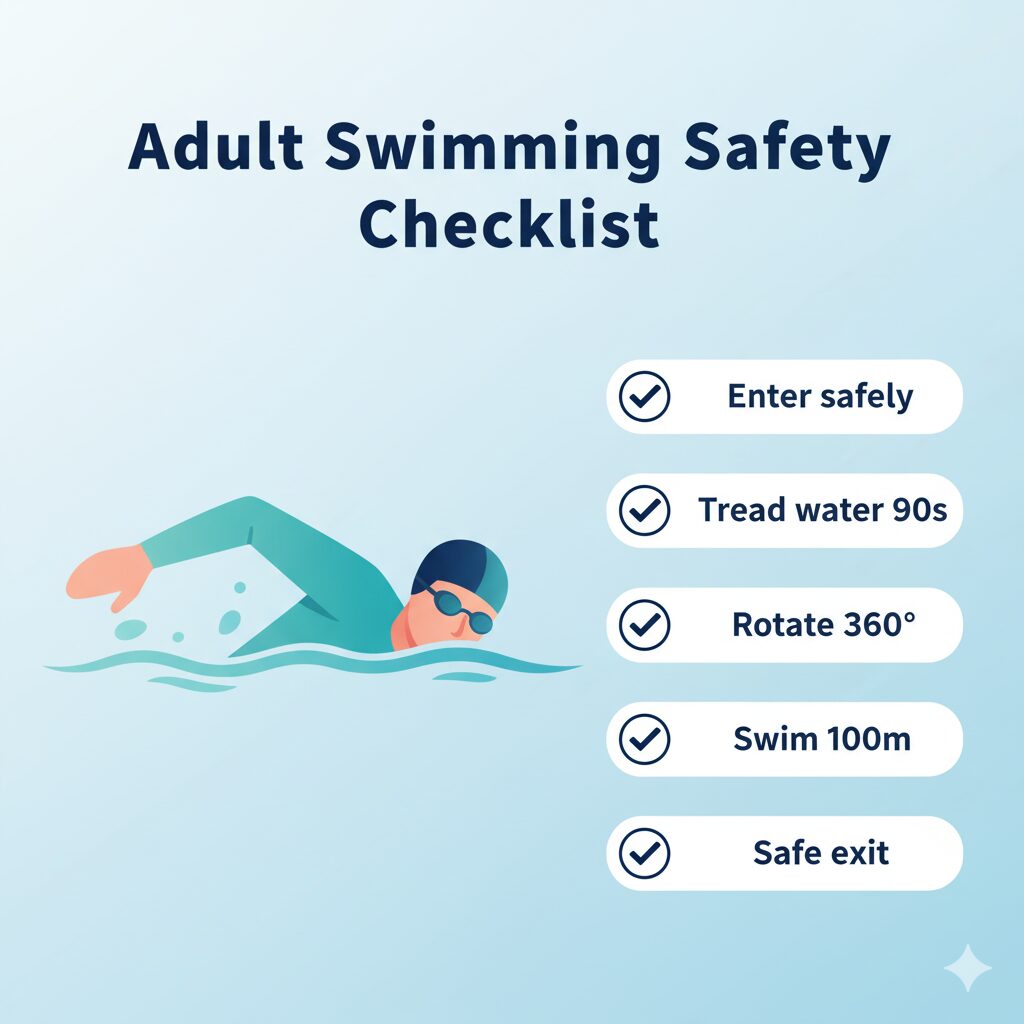
Myth‑busting
“Adults need a diploma to use public pools.”
False. Adults are screened on competence. Kids face diploma‑based rules (armbands, depth limits).
“Diplomas are required by law to attend school.”
False. School swimming is not mandatory nationwide; the 2025 decision kept it that way.
“Once I have a diploma, I’m set for life.”
No. Skills degrade without practice—NRZ explicitly advises keeping them fresh.
What to do instead of chasing a certificate
If you’re starting from zero
- Book adult beginner lessons or if you fear water aquaphobia lessons.
- Prioritize water‑confidence: face in the water, exhale, float, recover.
If you can already swim 25–50 meters
- Book intermediate swimming lessons to improve your tecnique and strokes.
- Drill safe entries/exits and controlled breathing under light stress.
If you’re open‑water curious
- Build to 100 m pool endurance, then transition with a coach for advanced lessons.
- Learn to read local risks (currents, drop‑offs, cold shock). Most drownings occur in open water.
Bottom line
For adult, a Dutch swimming diploma is a nice to have, not a need to have. If your goal is health, freedom, and safety around Dutch water, invest in skill acquisition and maintenance, not a stamp. When you’re ready to operationalize this, book an adult session at Win & Swim and we’ll build you a personalized, progression plan.
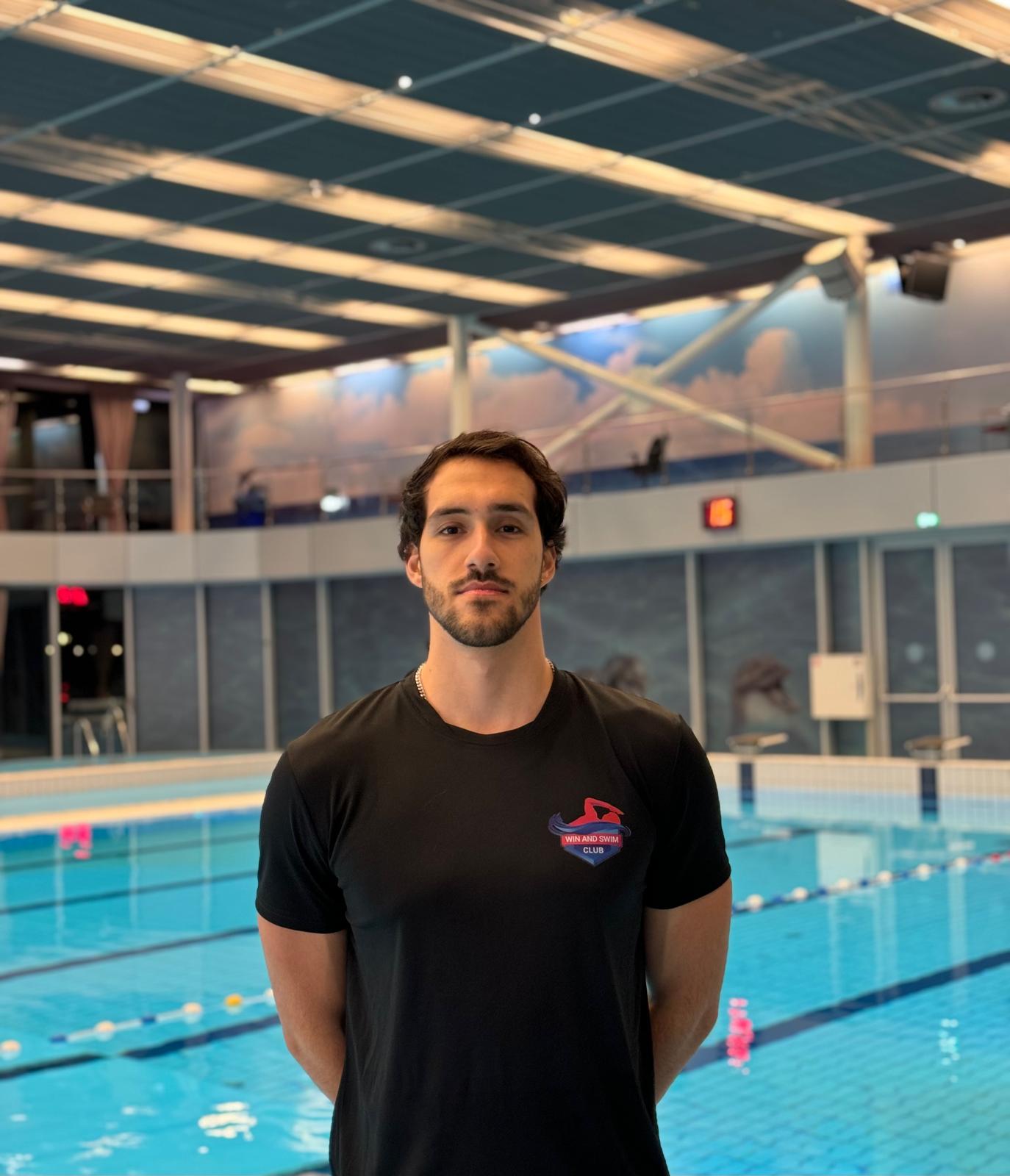
KNZB‑certified swim coach, former Romanian national and international freestyle medalist, and founder of Win and Swim Amsterdam. Passionate about adult‑learners and evidence‑based technique. With bachelor degree in swimming and first aid course, swimming is my element.
